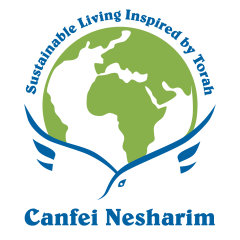Preparation
Intended audience:
Children 7 and up.
What to Provide:
1 large bucket filled with water
1 large empty bucket
One large glass or clear plastic cup or jar (at least 1/3 quart capacity).
One common plastic washing cup (32 oz.) or, preferably, a metal cup of about the same size.
Introduction
In the Simchas Beis Hashoeva during the time of the Beis Hamikdash, many Jews, led by a Cohen, would walk together to the banks of the Shiloach, a spring that runs outside of the Old City. They would collect what the Torah calls 3 “log” of water from the spring and then they would all walk back together to the Beis Hamikdash where the water was poured over the altar. It was a very fun time because the Leviim would sing and play instruments and everyone else would dance and have a great time.
The cup that the Cohen used to collect the water was made of gold and it probably had handles on it—just like a washing cup! In fact, it probably was about as big as the washing cups we use today.
You may want to act out this process with the students. Appoint one as the Cohen and a few as Levi’im. Have the Cohen lead the rest of the participants to the water bucket while holding the washing cup (take a long route around the room) while the Levi’im sing and clap to ‘shavtem mayim besason’ or ‘mitzvah gedolah lihiyot beshimcha.’ Of course, everyone is welcome to join in.
Let’s say that 3 logs equals a quart of water. (Actually, it is 18 eggs.)
1 quart = approx.2 logs
1 log = approx. 1/2 quart
Show the participants how much water is one log by filling a washing cup to 1/2 capacity from one of the buckets and pouring it in to a smaller (preferably transparent) container. Show the participants how much water is one quart by filling up a washing cup and showing them that it is full. When you have poured both the full and half washing cup, you will have poured approximately 3 logim.
Pouring the water over the altar used to remind the Jews to pray for rain in the winter that is coming. (Just like we say Tefilas Hageshem nowadays during Succos.) Rain in Israel is very precious because there are not a lot of big lakes like in the United States or Canada to provide water for drinking and watering the farms. So Jews in the time of the Beis Hamikdash knew how important it was to save water. Do you pay attention to how much water you waste?
Let’s see if you can guess how many washing cups full of water it takes us to do the following day-to-day things.
(With older students you may want to ask them how many LOGS of water it takes to do these things—then let them do the math to figure out how many washing cups worth of water it would take.)
| Activity | Quarts | Log |
| Flushing a Toilet | 20 | 40 |
| Washing Dishes | 52 | 104 |
| Taking a Shower | 52 | 104 |
| Taking a Bath | 148 | 296 |
| Washing the Car | 80-120 | 160-240 |
| Doing Laundry | 76-180 | 152-360 |
Isn’t it amazing how much water we use for our day-to-day activities? In fact, the average American uses nearly 243 gallons (972 quarts or 1944 logim) of water every day! But our water resources are limited and we have to share them with the rest of the world.
Water is a precious gift from Hashem, and we can show our appreciation by safeguarding its use and preventing waste. The mitzvah of Bal Taschis (do not destroy) calls us to use our resources wisely.
Anyone who smashes household goods, tears clothing, demolishes a building, stops up a spring, or wastes articles of food in a destructive manner, is in violation of the command “you shall not destroy”… (Maimonides, Mishneh Torah, Laws of Kings, Ch. 6 Laws 8-10)
And Rabbi Shimshon Raphael Hirsch writes in Horeb, 279-80: “Do not destroy anything” is the first and most general call of God, which comes to you, man…God’s call proclaims “only if you use the things around you for wise human purposes…do you have the right over them which I have given you. As soon as you use them unwisely, be it the greatest or smallest, you commit treachery against My world, you commit murder and robbery against My property, you sin against Me.”
What can I do?
- Turn off the faucet! Don’t let it run between washing for netilas yadayim, while brushing your teeth, or while lathering dishes.
- Ask your parents to buy sustainable seafood.
- Tell your parents to use non-toxic cleaning alternatives and to take unwanted household chemicals to hazardous waste collection centers; do not pour them down the drain.
- Eat less beef.
- Don’t buy a lot of bottled water to drink in your house (every once in a while, when you are out, is OK). If your parents feel that your drinking water is not safe, ask them to filter your water.
- Take the Canfei Nesharim stickers and hang them up in your house to remind you to save water.
